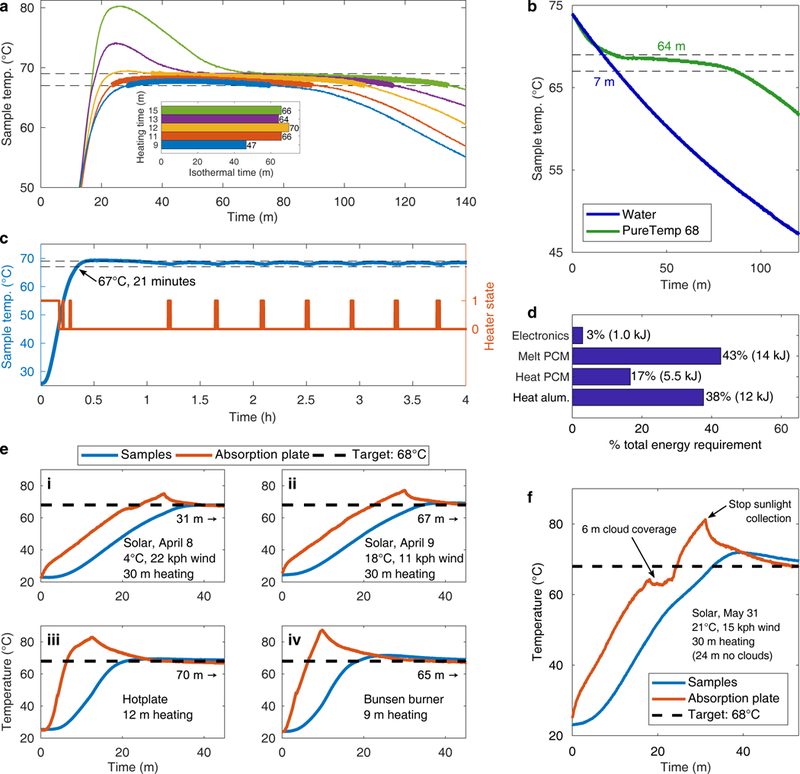Fig. 3. TINY heating characterization.

(a) Temperature profiles of TINY at the location where samples are placed when heated by a hotplate for a variety of times. Heating started at 0 minutes, and at the respective heating time TINY was taken off the hotplate and allowed to cool. Dashed horizontal lines show the isothermal temperature range (68 ± 1°C). Thick colored lines show the isothermal dwell. (b) Comparison of the cooldown temperature profile inside TINY when different materials were placed between the two concentric aluminum cylinders. Isothermal time for each material is overlaid. (c) Temperature profile of TINY when heated by a cartridge heater. A microcontroller is used to automatically turn on and off the heating. (d) Summary of the energy required to operate TINY for one hour. Measurement error for electrical power consumption: ± 0.04 kJ; other categories were calculated by device geometry and heat capacitance values. (e) Temperature profiles of TINY when heated via sunlight (i, ii), hotplate (iii), or Bunsen burner (iv). Heating conditions are displayed in each subfigure, along with the duration of the following isothermal dwell (marked with the right-facing arrow) given no additional heat input. (f) Temperature profile of TINY when heated using sunlight on a partly cloudy day. Subfigures are from experiments performed once; however, (a) shows that a long isothermal dwell (~ 65 m) is repeatably observed in TINY when cooled in a room temperature environment from a fully heated state.
